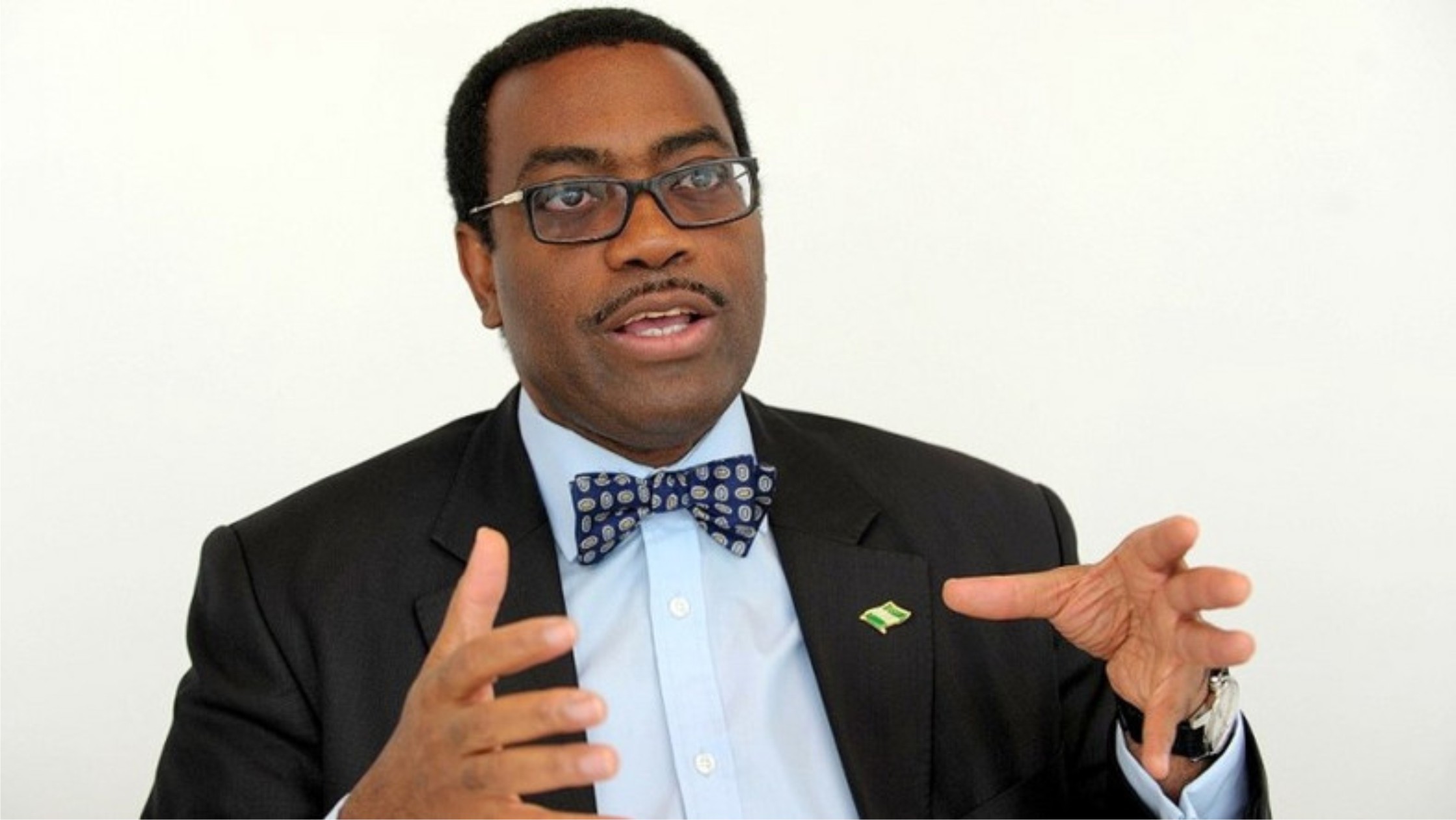Business
AfDB Spends Over $44bn On Infrastructure In Six Years

President of the African Development Bank (AfDB) group, Dr. Akinwumi Adesina, says the bank has committed over $44billion to development of infrastructure across the continent in the last six years in areas of transport, energy, water, and sanitation.
He has also said Africa is faced with an infrastructure gap of between $68billion and $108bn annually.
A statement from the bank, which was obtained by The Tide, revealed that AFDB, the premier financier of infrastructure in Africa, has committed more than $44bilion to infrastructure across the continent in the last six years alone, in the stated critical areas.
“Despite collective efforts, Africa still faces an infrastructure financing gap of $68billion to $108billion annually”, Adesina said in the statement.
Consequently, he proposed eight solutions to Africa’s infrastructure finance gap, and, according to him, project preparation facilities were critical to developing bankable infrastructure projects since one of the major challenges of infrastructure projects was moving commercially viable projects to financial close.
He added that institutional investors including pension funds, sovereign wealth funds, and insurance companies had enough resources to scale up infrastructure financing from billions to trillions of dollars.
”This pool of capital is so vast that what is needed is only 0.03 per cent or up to 0.04 per cent to bridge the infrastructure financing gap for Africa.
”Multilateral development banks should take early-stage investment risks in the project development phase.
”Since the government provided the largest share of infrastructure financing, it must improve the efficiency of public financing for infrastructure”, he said.
According to Nigeria’s former agriculture minister, governments must focus more on attracting the private sector to infrastructure financing by improving the policy, legal and regulatory environment to support public-private partnership investments in infrastructure.
He added that there was a need for use of local currency for infrastructure financing, and explained that because foreign loans financed the bulk of infrastructure and the revenue streams were in local currency, this presented a high financial risk to investors.
By: Corlins Walter
Business
PENGASSAN Tasks Multinationals On Workers’ Salary Increase

Business
SEC Unveils Digital Regulatory Hub To Boost Oversight Across Financial Markets

Business
NAFDAC Decries Circulation Of Prohibited Food Items In markets …….Orders Vendors’ Immediate Cessation Of Dealings With Products

Importers, market traders, and supermarket operators have therefore, been directed to immediately cease all dealings in these items and to notify their supply chain partners to halt transactions involving prohibited products.
The agency emphasized that failure to comply will attract strict enforcement measures, including seizure and destruction of goods, suspension or revocation of operational licences, and prosecution under relevant laws.
The statement said “The National Agency for Food and Drug Administration and Control (NAFDAC) has raised an alarm over the growing incidence of smuggling, sale, and distribution of regulated food products such as pasta, noodles, sugar, and tomato paste currently found in markets across the country.
“These products are expressly listed on the Federal Government’s Customs Prohibition List and are not permitted for importation”.
NAFDAC also called on other government bodies, including the Nigeria Customs Service, Nigeria Immigration Service(NIS) Standards Organisation of Nigeria (SON), Nigerian Ports Authority (NPA), Nigerian Maritime Administration and Safety Agency (NIMASA), Nigeria Shippers Council, and the Nigeria Agricultural Quarantine Service (NAQS), to collaborate in enforcing the ban on these unsafe products.
-

 Business3 days ago
Business3 days agoCBN Revises Cash Withdrawal Rules January 2026, Ends Special Authorisation
-
Business3 days ago
Shippers Council Vows Commitment To Security At Nigerian Ports
-

 Business4 days ago
Business4 days agoNigeria Risks Talents Exodus In Oil And Gas Sector – PENGASSAN
-

 Business3 days ago
Business3 days agoFIRS Clarifies New Tax Laws, Debunks Levy Misconceptions
-
Sports3 days ago
Obagi Emerges OML 58 Football Cup Champions
-

 Politics3 days ago
Politics3 days agoTinubu Increases Ambassador-nominees to 65, Seeks Senate’s Confirmation
-
Business4 days ago
NCDMB, Others Task Youths On Skills Acquisition, Peace
-

 Sports3 days ago
Sports3 days agoFOOTBALL FANS FIESTA IN PH IS TO PROMOTE PEACE, UNITY – Oputa

